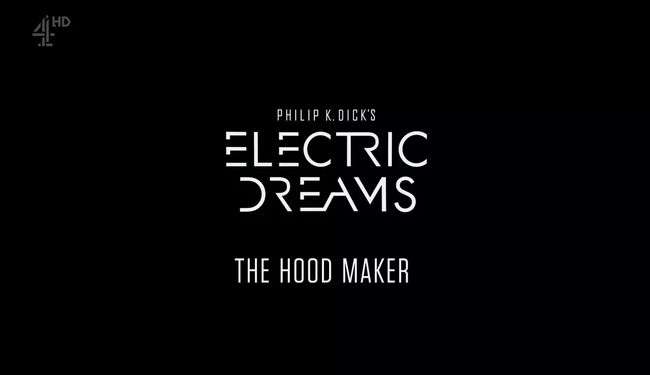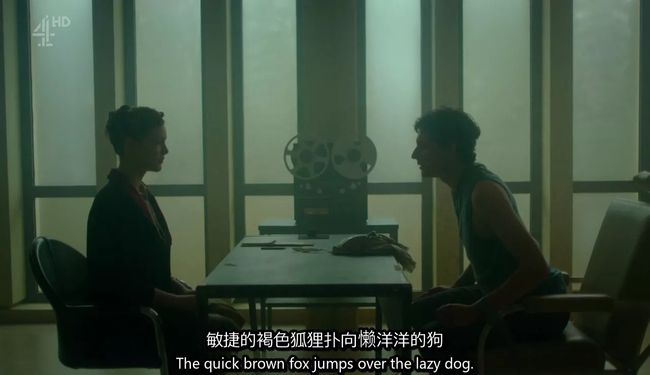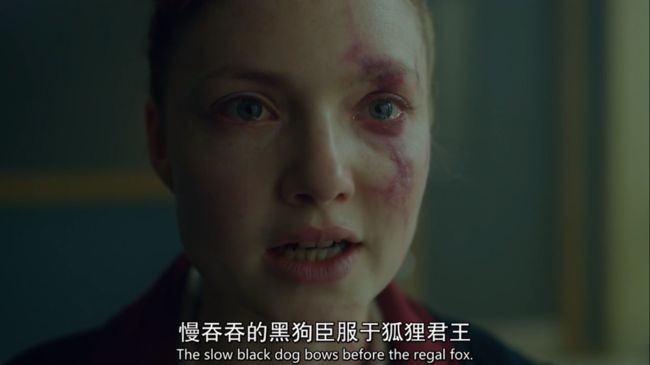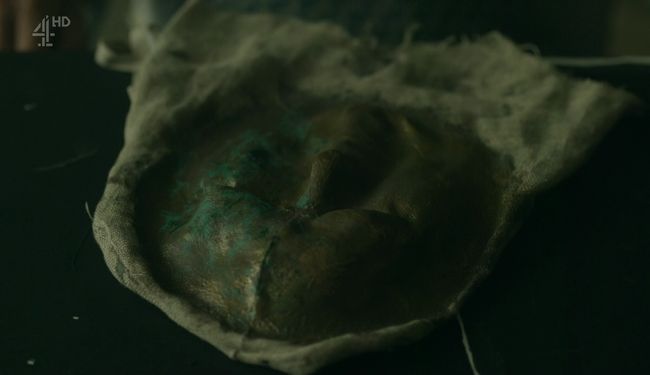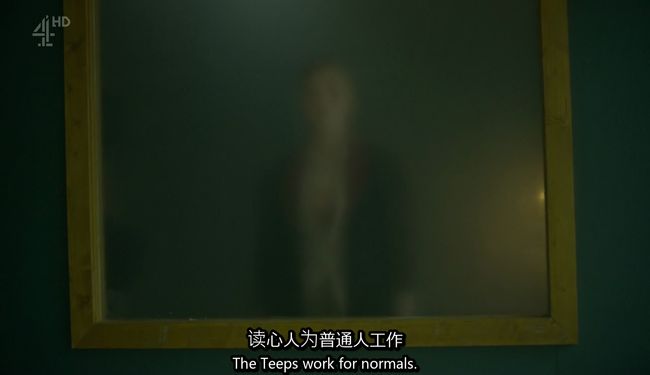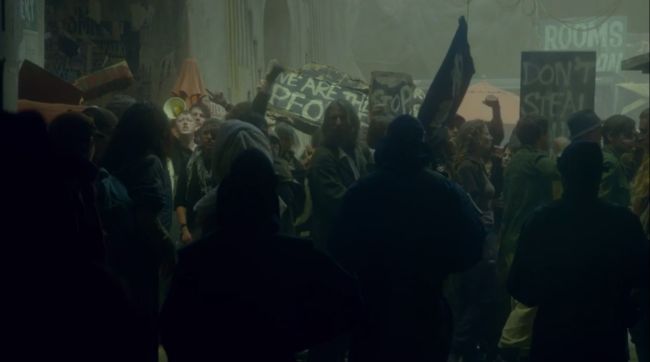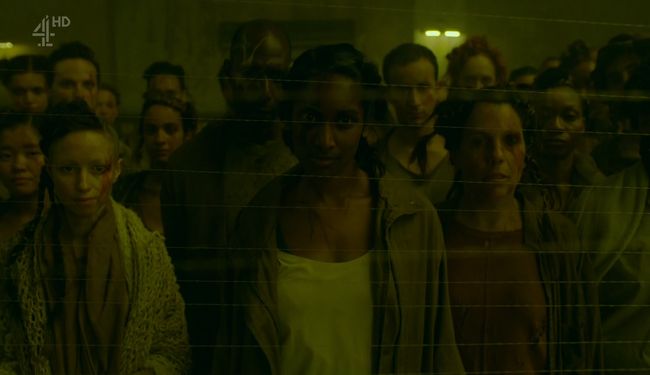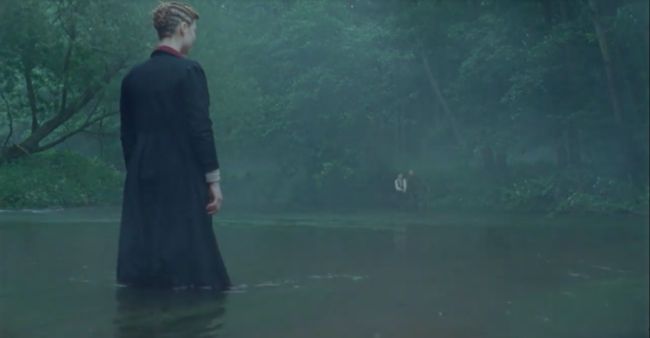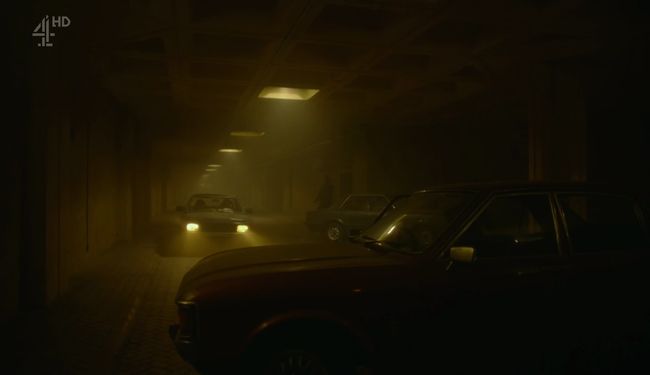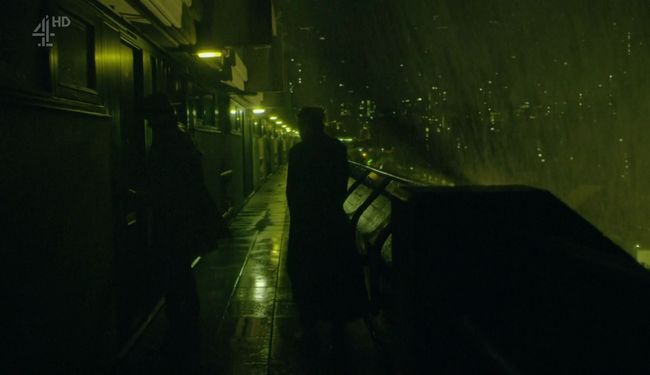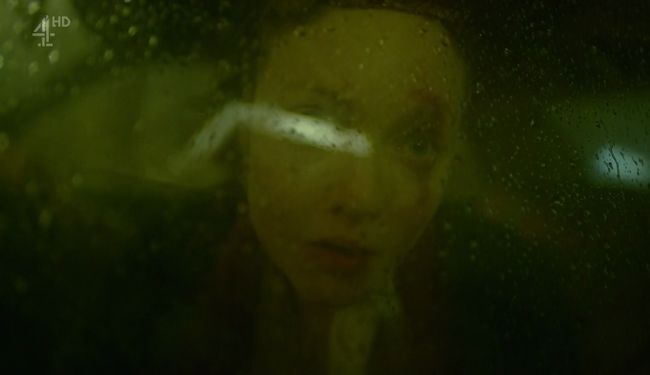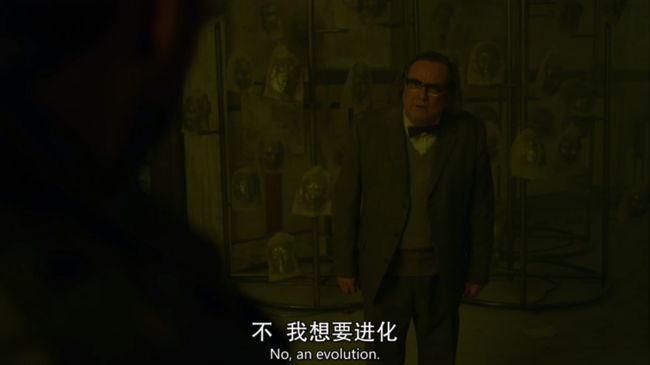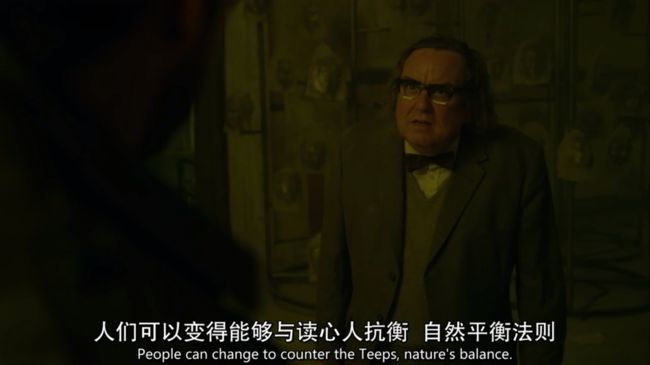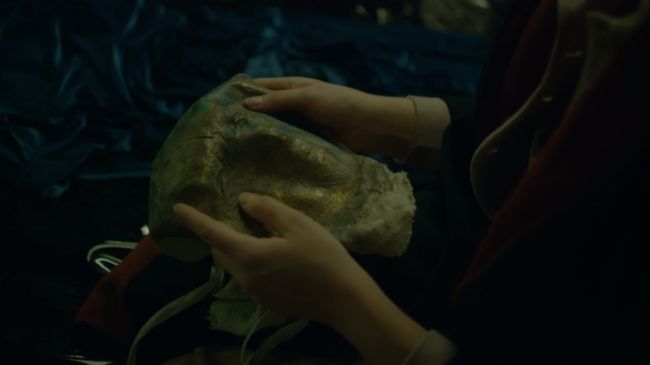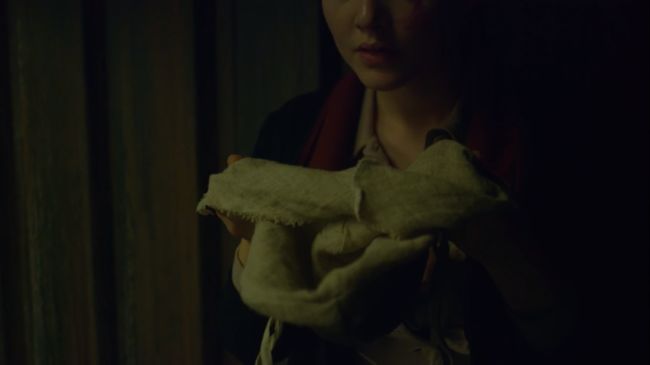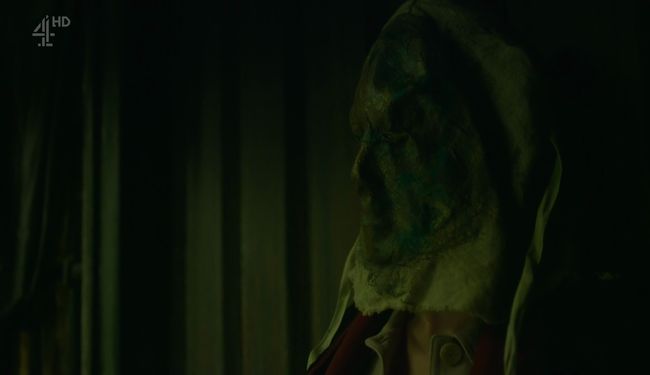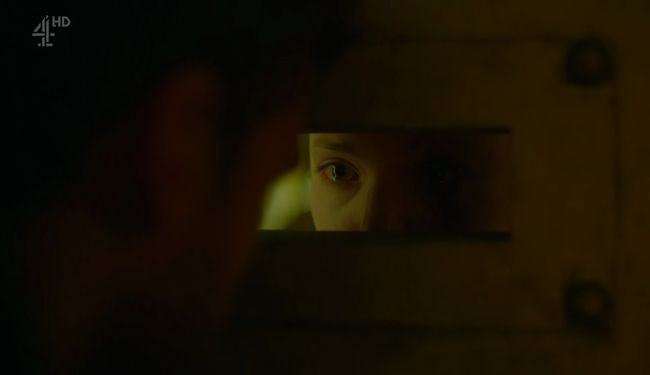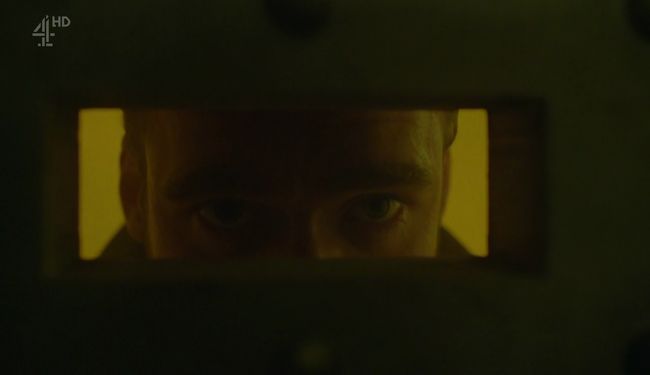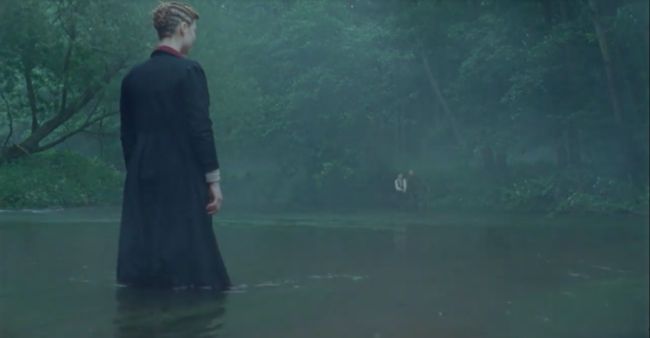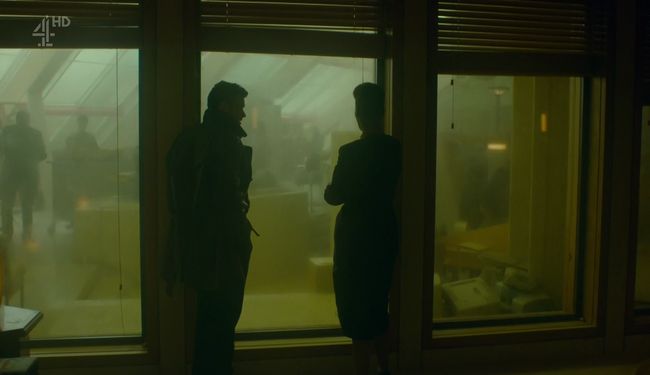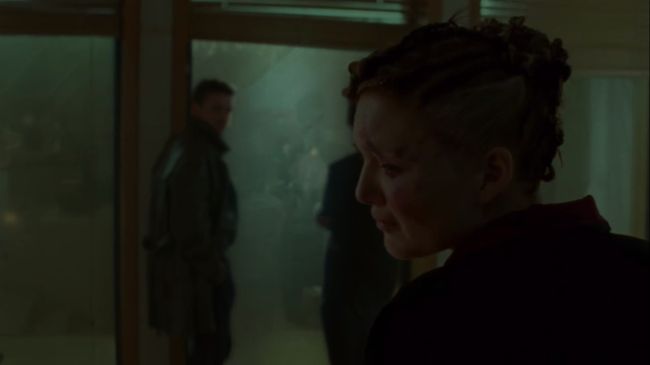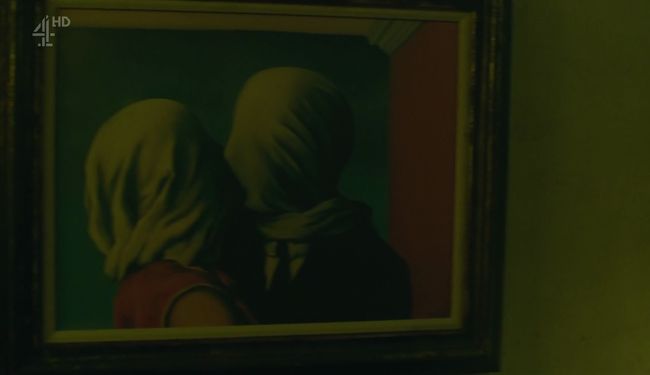The man, caught, face-to-face with a telepath, finally realized his position as a fish on the chopping board. Anger, desperation and anguished frustration manifested themselves in imploring and crying. His thoughts were nowhere to hide.
To block the telepath out from invading his mind, he helplessly fought to the last ditch.
"The quick brown fox jumps over the lazy dog." He whispered, and looped it again and again. The well-known sentence that contained all 26 characters meant for nothing. However, for now, nonsense was resistance.
Concentrating and filling his brain with one single statement did, temporally, concealed long-term memories. Words conquered minds for a second.
But the telepath moved her lips, and repeated:"The slow black dog bows before the regal fox."
An eye for an eye. Words conquered minds, still was this the truth.
Nowhere to hide.
——————————————
PDK
Philip K. Dick (December 16, 1928 – March 2, 1982) American sci-fi novelist, the late, great mind behind well known films Blade Runner (1982) and Minority Report (2002). Now exec-produced by Walter White, Bryan Cranston, working alongside Dick’s daughter, Philip K. Dick’s Electric Dreams (2017) offers ten stand-alone dramas that are freely adapted from PDK’s short stories. The name, I guess, sprung from PDK’s outstanding masterpiece, Do Androids Dream of Electric Sheep, which was the draft script of Blade Runner. This questioning evoked 2 levels of reflection:
First, do artificial manufactures dream?
Second, If so, are the objects they dream of mechanical?
The fantasy was how PDK dug into marginal situations and the crush in evolution periods, for instance, replicants, telepaths, Zen, cyberization, alternative/paralleled universes and all-too-human robots. In addition to 44 published novels, PDK wrote approximately 121 short stories. Though turbulent, raw and often unravelling faster than its plot, PDK’s work still made a house of mirrors. All reflected his eager interest in metaphysics and theology in forms of philosophical, social, and political metaphors. Plots were dominated by altered states of self-consciousness, authoritarian governments, monopolistic corporations, etc. As one can expect, nobody could seize any exact answer in the end, nor would PDK himself. Dream was such kind of thing. There are perceptions, ideas, clues and conditional logics, but never certainty and determinacy.
"Just because you're paranoid doesn't mean they're not out to get you."
——————————————
The Hood Maker
The Hood Maker’s original piece was written in 1953, when Cold War tensions fueled fears of widespread Communist subversion in the United States and Joseph McCarthy, the U.S. Senator, became the most visible public face of such a period that was marked by its coercive surveillance, strict internal reviews and political charges, even the smear tactics.
There was an oppressive air of gloom. No wonder that the oppression and absurdity of The Hood Maker resulted, in part, from the radical ways of PDK’s symbolization as representations of his feelings for reality.
The basic settings appeared in the simple form of an old, but not corny at all, story of people and government, majorities and minorities. PKD presented us with Telepaths, aka Teeps, a new kind of talented people who could read minds. The anti-immunity bill granted permission to use telepaths in clearance investigations.
Total access to civilians’ thoughts as deemed appropriately by the agent in charge without people’s consent. The Free Union was banning the street protest.
"Don't steal our thoughts.”
There was another appeal remaining unsaid--don’t brainwash our minds.
The fear was not psychologically just for the expose of those tacit dirty, murky thoughts. The real fear was something mental, spiritual.
The loss of free will.
"In the old world I remember how we fretted over the computers, the web, the information of everyone and everything. We built firewalls and encrypted our lives. I always thought it was an overreaction. There was a plug, pull it off, puff."
"Yeah, Teeps don’t have a plug."
"They want a firewall for themselves. But protection should be democratic. So should knowledge."
"And what about power?"
"We had the sanctity of our own thoughts before Teeps. Our minds are the only free, independent states in existence."
Civil ethics got in risk. Riots were from both sides. The war was not, and could never be, a one-way street.
Birthmark on face, the Teeps are so easy to be recognized, isolated and monitored. Forced by the government to live together in a prison camp, though not called so, the Teeps even had no free career choice. To be a verbal prostitute and get mentally raped, or to be selected by the system and become an guinea pig agent?
The possible space of language was vast for them. But it hurted.
The strongest power they had was the big data mental internet.
Not simply a boon to mankind, the mutated offspring of the callous survivors would also by all means struggle against discrimination in defense of their rights.
S01E01 started with a typical shot-by-British scenery whose watery light reminded me of BBC series, And Then There Were None (2015).
Two sets of characters stood diagonally while the woman, clad in a somber black coat, knee-deep in the center of the stream, were slightly not keeping with the occasion.
As you can tell, an outsider.
Charms arose from here that the sound of a river flow was always considered deeply connected with Zen and meditation. Harmonious and peaceful delight on one side, nevertheless a sober watcher on the other side. Who watches the watcher? The camera, the audience, a third perspective from the very beginning.
Then, the following scenes returned to a definite Blade-runner look to the decent steam-punk sets with dark dense fog and acid rain noir look.
Windows were misted, blurring the streetlight. The still air smelt faintly of rain-spattered tawny brass and bronze, teeming with rusting.
I must admit that I always have a as crush on these, aesthetically hooked on the retrospective, as well as transcendent world set—a hazy scene, a obscure view, a vague but impressive perception, etc.
The main charm of PDK's stories was that they typically focused on the fragile nature of what was real and the construction of personal identity. His stories were such surreal fantasies.
However, it was merely a soft science fiction exploring social practical problems, differing from the traditional "hard science fiction” that logically based on certain science theories. The feature of The Soft is quite obvious, an narrative mode was throughout the whole episode without questioning how things could happen from the origin.
As I put Star Trek higher on the rank than Star wars, such super-power presupposition might not satisfy me in most circumstances, except for this time.
Presuppositions have their own application and deduction, that is what I call Conditional Logic. Left aside the question where the Teeps had came from, PDK in his version gave his explanation but skipped any detail. A so-called Madagascar Nuclear Bomb Test Failure was just one of the countless possible accidents that science would possibly run into. Moreover, in S01E01, the Teeps just emerged. It was no doubt PDK’s feet of clay.
But it was still acceptable because the fear of unpredictable power of science, and the anxious about being weak and blind in front of random mutation and natural selection, was rather an internalised human nature.
Fascinating facts were that the story was originally titled “Immunity”, published in Imagination in the Jun 1955 issue.
Frankly speaking, I appreciate this title far more than the latter.
Given the intense interest of contemporary biology in evolution,genetics and their powerful off shoot, genetic engineering, I prefer to view the discourse of S01E01 as the embers of nineteenth century Victorian natural history romance about gene mutation, adaptive change and natural selection. Victorian science has all the fantastic roots for these sci-fi since Darwin’s The Origin of Spieces grasped the core concern of life.
Then, the whole story was just a part of the process of natural evolution--random mutation and immune response.
The hood represented immunity.
I loved the scene that Honor the telepath, shilly-shally, put on the hood.
Tranquil mind lasts for seconds. It was the peace that she had never enjoyed.
Considereing this scene as a symbol, one could easily guess from the similarity that the next plot was to reveal the immunity Ross had. Moreover, it indicated a destiny, a fate, that natural balence would definetly happen in the end.
But why couldn't the Teeps bear immunity?
I would say, it was about power. The essence of any technology, knowledge and ability were all the same. Once you had such power, it was too hard to let it go.
For Honor, withholding the truth was already a betray.
She could not trust when she could not read Ross's mind. Sensitive as she was, she got stung, finding herself an blocked outsider.
How to distinguish truth from falsehood?
Here’s the picture that caught my eyes at first sight, far too common, an office. But it turned out to be the most important scene in the whole story.
It made sense to put the watcher, genetic mutant, the next stage in evolution, homo superior inevitably into a reversed status—being watched. The window here was a block. It was impossible for her to navigate around as she always did.
The madam: “Not as nervous as it looks perched out there.”
Ross: “She. She is a she?”
The madam: “Yeah. Yeah. Consider me told.”
Not much respect from the normals’ side. But at least Ross did treat her as a human.
However, when Honor read Ross's memories. She went back to her perspective as the watcher.
The conversation continued:
Ross: “I’ll have it eating out of the palm of hand.”
The madam: “Her. It’s a her.”
I got confused at first. I didn't suggest to regard the former conversation as fake ones. And the plan to get the Teep agent close might be real. But how come the attitude towards telepath got exchanged?
How to distinguish truth from falsehood?
The telepaths only trusted what she read from a person.
"I will know the truth if I read you."
Third perspective as I was, I nevertheless believed facts, which was, what I saw from the beginning, more than memories. Because memories can cheat. Memories can mislead. And that reminded me of Ross's words:
"It wasn't my choice to block you."
So, there might not be such latter conversation. It was immunity that automatically blocked the real past. Half right, half wrong. Fake truth.
But Ross still apologized for concealing the covert mission. "Forgive me." He said.
He might die.
Honor would never know the real truth.
My favorite shot was the glance of René Magritte(1898–1967)'s painting, the lovers (1928), which was a genius masterpiece. Belgian surrealist artist best known for his witty and thought-provoking images, René Magritte also used hoods to represent lovers.
Some of my friends viewed this painting the stuff of gloomy philosophical contemplations. The architecture in the background were morden. The characters were dressed up in decent clothes but riped out of self-identity.
Was love just a deception of civilization?
When Plato talked about eros in Plato's dialogue the Symposium, he defined eros as it continued to be a "desire to possess". According to Plato, the gods do not love, because they do not experience desires, inasmuch as their desires are all satisfied.
Let me put it another way, that means eros arises from unsatisfaction. Eros remains always an egocentric love: it tends toward conquering and possessing the object.
But the truth might be unreachable. Though eros was thus the way that leads man to divinity, it still fell into the paradox of agnosticism.
The charm of PDK is right here. "All of his work starts with the basic assumption that there cannot be one, single, objective reality", writes science fiction author Charles Platt, "Everything is a matter of perception. The ground is liable to shift under your feet. ”(Platt, Charles. 1980. Dream Makers: The Uncommon People Who Write Science Fiction. Berkley Publishing.)
Sometimes it is the agnosticism that should be taken for granted.
The rational view of things may sound pessimistic. However, we're still sensitive to life. We still feel heartbroken for the loss of trust. We still enjoy the triumph when we sense empathy. We still cherish the uncealment of misunderstanding.
As Ross told Honor, "We're all allowed to have secrets.". So what?
